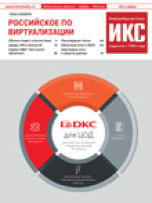| Рубрикатор |  |
 |
| Все новости |  |
World News |  |
 |
US mobile monthly ARPU to grow to $51 by 2015
| 16 марта 2012 |
The growing appetite for mobile data will push U.S. mobile operators' average revenue per user (ARPU) up to $51 per month in 2015, up from $46.50 this year, the Telecommunications Industry Association (TIA) forecast this week.
The industry body predicts that monthly ARPU will rise by a steady $1.50 per year over the next few years, according to its latest annual report on the ICT industry. The forecast will come as welcome news to the telcos, which saw ARPUs fall from $48.65 in 2005 to $44.35 in 2010, before a slight uptick last year (see chart).As it stands, U.S. mobile operators generate almost as much revenue from data services as they do from voice, but data will take the lead next year. And in 2015, "twice as much will be spent on the data component than on the voice component," said Arthur Gruen, economist and principal author of the TIA report, during a webinar on Wednesday.
In 2015 U.S. telcos will generate a total of $144.2 billion in revenues from mobile data services, compared with $76.1 billion from voice. This year, data revenues will come in at $89.8 billion, versus $98.8 billion for voice; in 2013 data revenues will surpass the $100 billion mark to $108.4 billion, while voice will slide to $91.5 billion.
As the market changes, so will operators' pricing models.
"You're going to see... [operators] charging more for high data users... [and users] paying for how much time you use," similar to voice plans in the past, said Gruen.
Meanwhile, Yankee Group principal analyst Ken Rehbehn reiterated concerns over how operators will deal with the data boom as the industry comes up against a lack of spectrum.
"Spectrum is the top contender for what keeps people awake at night," he said. "Spectrum is quite the restraint... [it] starts to come down to getting more cell sites out there," he noted.
"Plan B" in dealing with spectrum shortage is to move into integrating WiFi into small cell technology and allowing seamless and automated roaming between WiFi and 3G networks, Rehbehn said. "These mechanisms will enter the market in the second half of the year," he predicted.
Indeed, vendors and operators alike are beginning embrace the effort to integrate WiFi into small cells. At Mobile World Congress, Cisco revealed that AT&T will trial its seamless WiFi, 2G, 3G, and LTE small cell platform.
Meanwhile, the Small Cell Forum predicted that small cells will account for 88% of all base stations by 2016.
Источник: Total Telecom















Оставить свой комментарий:
Комментарии по материалу
Данный материал еще не комментировался.